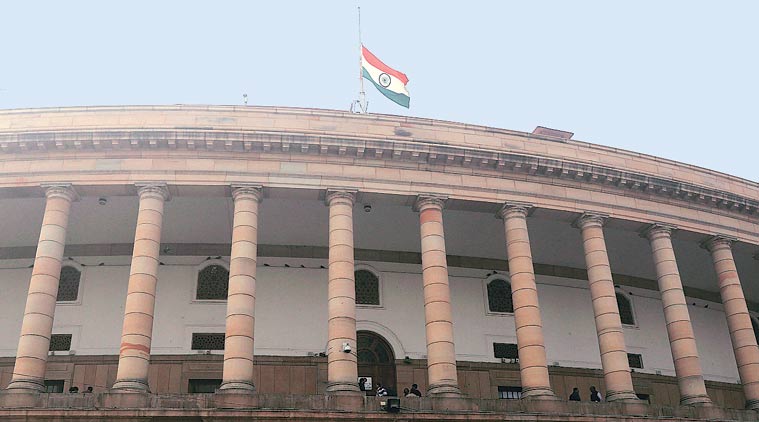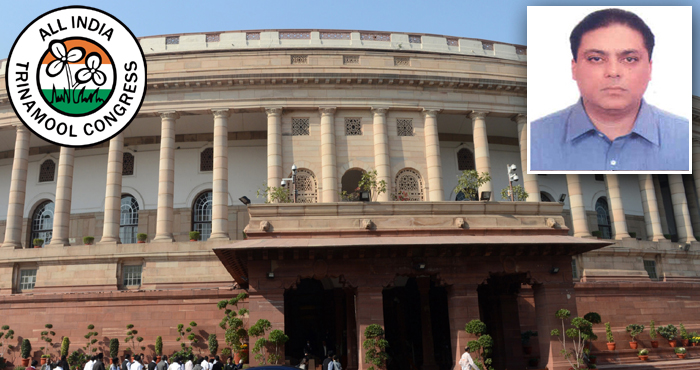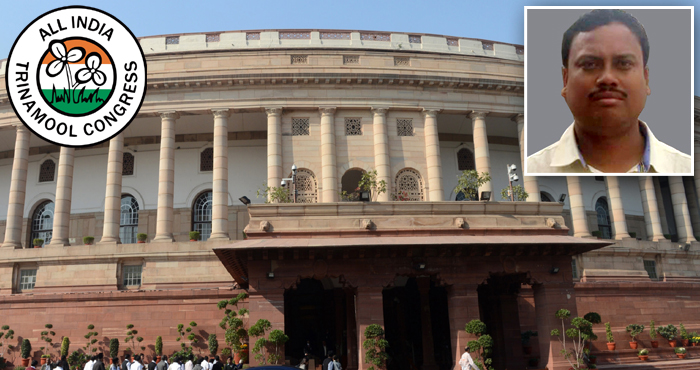FULL TRANSCRIPT
Madam Speaker, three years before we won our freedom, Netaji Subhas Chandra Bose gave a speech to the faculty and students of the University of Tokyo on the fundamental problems of India. In the course of his wide-ranging address, he identified three priorities for free India – one, the organisation of our national defence, two, the removal of poverty and three, the provision of education for the Indian masses. Seventy years after independence, these areas continue to demand our urgent attention.
The challenge for any Finance Minister is to strike just the right balance between the imperative for defence and the need for development in allocating the resources of the State. In recent years we have come to appreciate that national security is a far broader concept than a purely military-oriented definition might suggest. Public investment in a health and well-educated populace can be seen as a contribution to our nation’s security. The defence budget, therefore, is simply the most direct aspect of fiscal planning for a safe national environment. Viewed in this light, the Finance Minister has provided a reasonable sum of Rs 2,74,114 crore for defence expenditure excluding pensions.
We can only speculate whether Shri Arun Jaitley would have been more generous to himself than he was to Shri Manohar Parrikar. But be that as it may, the Defence Budget in our country is the fourth largest in the world after the United States, China and the United Kingdom. There have been steady, moderate increases in spending on defence during the last three years. The current ratio of defence expenditure to GDP of 2.14 per cent is higher than the cap of 1.76 per cent that had been proposed by the 13th Finance Commission.
Even though the total allocation for defence may seem adequate, a disaggregation of the amount by revenue and capital expenditure shows there is cause for grave concern. The ratio of revenue to capital expenditure has gone up to as much as 68.4 per cent in the Budget Estimate for 2017-18 by comparison with the already high 64.6 per cent in 2015-16 and 65.3 per cent in 2016-17.
With personnel costs, Madam Speaker, swallowing up more than two thirds of the Defence Expenditure, precious little is left for the modernisation of our armed forces with state-of-the-art technology and equipment. In fact, the overall modernisation budget or, what is called the Capital Procurement Budget, has gone down this year. The Army has seen a decline of approximately 6.4% and the Navy of as much as 12.1% despite what my friend from the Treasury Benches said just now.
The increase in the Air Force’s Budget by about 12.1% is accounted for by a handful of gigantic contracts to acquire Raphael Fighters and Apache Attack and Chinuk Heavy Lift helicopters. Madam Speaker, I am especially dismayed by the cut in the Navy’s modernisation budget. The Indian Ocean inter-regional arena is of vital strategic importance to our country. The protection of the sea-lanes, traversing the Arabian Sea and the Bay of Bengal is essential if we are to secure our economic future as a part of an Asian resurgence in the 21st century. I am aware that the acquisition of six more conventional submarines was authorised last year under Project 75 I, these are being built in India with foreign collaboration. The first of the Scorpene class submarines – Kalaveri – has gone through its sea-trial.
But we need to do much more. Our strategic vision on power dynamics in Indian ocean must guide our strategic investments in our Navy. The strong case for our increasing capital expenditure on the latest military equipment is unfortunately undermined by the sorry records of under utilisation by the Ministry of Defence of allotted funds. It is most unfortunate that the Ministry of Defence returned more than Rs 13000 crore under the capital head in 2015-2016 and about Rs 7000 crore in 2016-2017. The Finance Minister is also the Defence Minister. I hope he will take the necessary steps to make the Defence Ministry more efficient in utilising capital funds.
The question of capital expenditure leads me to consider the matter of defence production. Despite the fan fare surrounding PM Modi’s ‘Make In India’ it unfortunately remains just that an empty slogan with no strategy for implementation. In the same speech given by Subhas Chandra Bose which I quoted at the outset, he went on to say the moment India is free, the most important problem will be organising our national defence in order to safeguard our freedom in the future. For that we shall have to build up modern war industries so that we can produce the arms that we shall need for self defence. This will mean a very big programme for industrialisation.
Seven decades after independence our defence requirements are heavily reliant on imports. The burden of a spiraling import bill has been made more onerous in the last three years because of the declining value of the rupee in relation to the dollar. I would like to ask the Finance Minister why in his Budget he has not given any special incentive towards defence production within India in support of the Prime Minister’s ‘Make in India’ programme. What are his reasons for not giving infrastructure status to the more crucial sectors of our defence industry. Is there any plan at all to provide more jobs for our youth in defence related manufacturing.
In December 2015, our Prime Minister had given a very significant speech to our Army, Navy and Air Commanders in which he spoke of the need for a new approach for our Armed Forces, one that would give emphasis to new technology instead of blindly increasing the size of the forces. Has the government any intention of moving in that direction and thereby improving the ratio of capital to revenue expenditure. China, Madam Speaker, reduced it’s military manpower from 4.9 million in the mid 1990’s to 2.3 million two decades later. I know that a drastic reduction is not possible in our country, so long as this government presides over and is complacently satisfied with jobless growth and employment oriented economic strategy. Including jobs in defence production is a necessary condition for military modernisation.
Madam Speaker, any discussion of our military cannot be limited to dry economic statistics. The people of our country feel an emotional bond with our armed forces. We mourn as nation when the bodies of our martyred jawans are brought back to their home villages in different parts of the country. Our hearts are filled with pride when we see our soldiers marched into the tune kadam kadam badhaye ja.
A political leadership must do their best not to impose impossible internal security tasks on our military so that our soldiers can focus on defending our borders. My friend from the BJP almost handed over some territory to our neighboring country. I thought we had only crossed the Line of Control for the surgical strike. We do not consider that to be Pakistan territory.
When we send our soldiers to face the icy winds on the Siachen Glacier it is incumbent on us to give them the best protective armour to withstand the elements of nature. We cannot be miserly when it comes to bullet proof jackets or night vision equipment for our soldiers working in the most difficult terrain in the world.
I feel very sad to know that this government had many difficulties in 2014 in finding a capable and dedicated full time Defence Minister. I urge the Prime Minister to give the country a Raksha Mantri whose predilection for Goan delicacies is less important than proving nutritious food to our jawans. I urge the Prime Minister to give our country a Raksha Mantri who deems the proud responsibility of organising our national defence to be more important than power at any cost in a small State of our great Indian Union.
Madam Speaker, we on this side of the House too have a dream for a new India by 2022. I dream that India will be the most vibrant economy in the world with our citizens enjoying universal access to education and healthcare. I dream that India will be home to 20 of the world’s top 100 universities attracting the finest faculty and students from all over the world and over arching Indian identity will co-exist with multiple identities of our diverse population. That identity will be most powerfully articulated through the medium of our music to whose rhythm the entire country will dance. We will celebrate and respect our differences to rise above them.
To realize that dream of a prosperous and harmonious India we need peace. To ensure peace we require intelligent and resolute defence preparedness setting aside all temptations to be jingoistic. There are many weapons we have to acquire but we cannot use most of them. To build a new India by the 75th anniversary of our independence we will have to integrate our defence policy with a grand strategic vision based on a broad and imaginative definition of what constitutes genuine national security. That is the challenge before us, Madam Speaker, and so let us together rise to that challenge.








